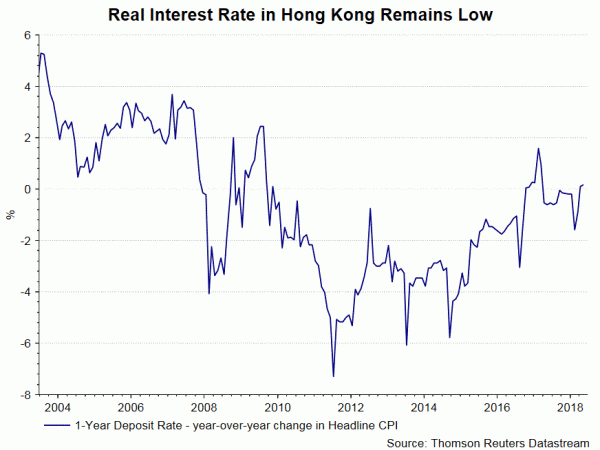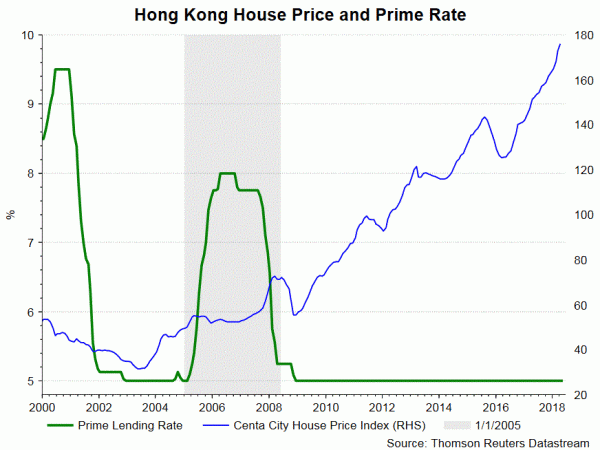Although Hong Kong dollar (HKD) had approached the weak side (7.85) of the trading band against US dollar (USD) in May and June, after HKMA’s intervention in April, the gap between HIBOR and LIBOR has narrowed significantly since then. Through buying HKD and selling USD, HKMA’s numerous rounds of intervention in mid-April helped withdraw liquidity from the market, causing interbank rates to increase. As a result, the interbank liquidity has shrunk to about HKD 128B on April 23 from HK$ 180B before the intervention. Currently staying at HK$ 109B since mid- May, driven by further capital outflow, the interbank liquidity has been diminished to the lowest level since December 2008. Meanwhile, the 3-month LIBOR has risen almost +100 bps since the intervention. As a result, the HIBOR—LIBOR spread has narrowed to -0.25% as of June 26, compared with about -1.18% before the intervention. One-month HIBOR-LIBOR spread has narrowed more sharply to the level not seen since November 2015.
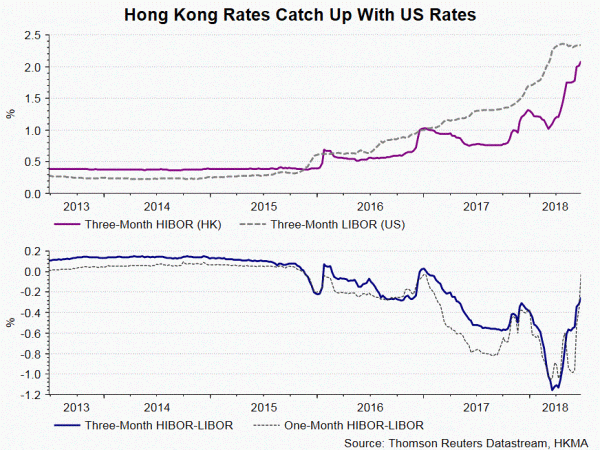
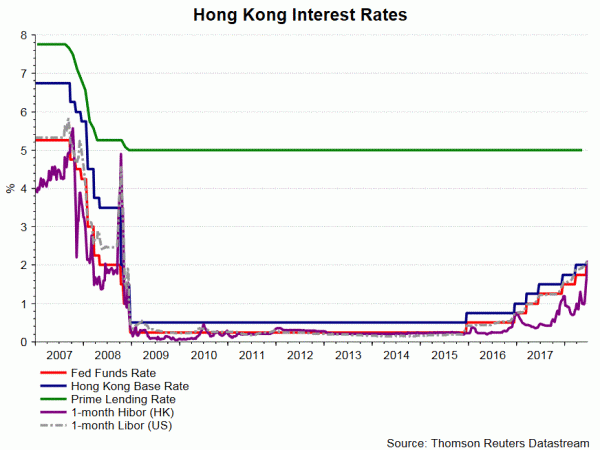
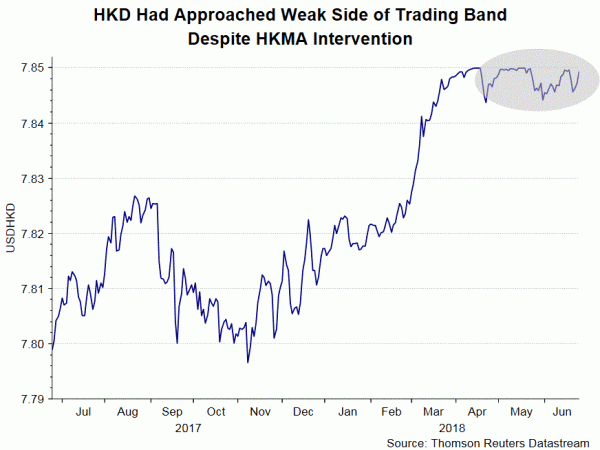 The questions we are facing now are: 1. Would further withdrawal of liquidity squeeze interest rates sharply higher? 2. The Fed is expected to raise the policy rate for two more times in 2H18. Would the catch-up in Hong Kong rates be so rapid that it leads to a fall in the property market?
The questions we are facing now are: 1. Would further withdrawal of liquidity squeeze interest rates sharply higher? 2. The Fed is expected to raise the policy rate for two more times in 2H18. Would the catch-up in Hong Kong rates be so rapid that it leads to a fall in the property market?
Although interbank liquidity has reached the lowest since December 2008, we have to emphasize that the current liquidity has remained ample by historical standard. Note that during Fed’s previous tightening cycle in 2004-2006, the interbank liquidity was hovering at a range of HK$ 1.3- 55B, or 1- 50% of the current level. Meanwhile, we believe that upcoming mega IPOs would help raise liquidity from the current level. As we mentioned above, HIBORs have soared over the past two months. This has increased the pressure for banks to raise the prime lending rates, which are currently at 5% or 5.25%. Indeed, prime lending rates have not been adjusted since December 2008, although the Fed has increased the policy rate for 7 times. We do not expect such a gradual increase in prime lending rate would roil the property market. We would like to emphasize that, despite recent pickup, the real rates in Hong Kong remain very low (about 0%), due to the improvement in inflation. Meanwhile, investors are relaxed that the rapid increase in property prices would more than offset the increase in interest costs.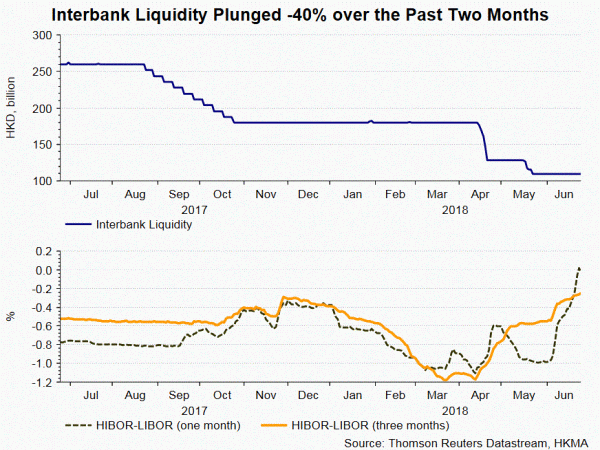
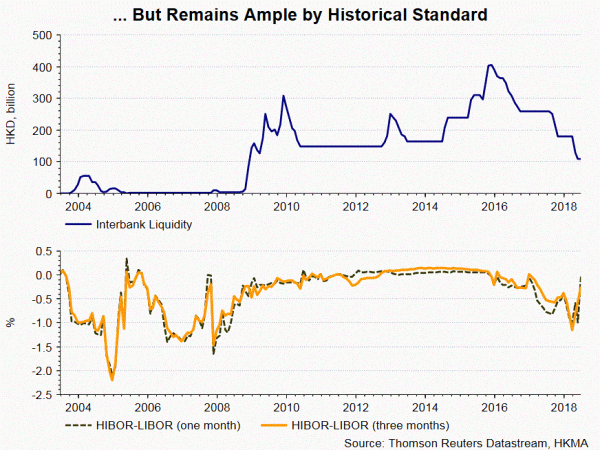
There are comments that the current interest rate situation in Hong Kong is similar to the Fed’s previous tightening cycle during the period of 2004-2006. We would like to point out that the pace of increase rate increase is far slow than that time, when the Fed had hiked the policy rate by 425 bps. The Fed has to double the pace of rate hike if it wants to repeat the policy cycle back then. Yet, if history serves as a guide, it is noted that property price had risen for 3 more years after the first prime rate hike in 2005. We are not concerned that further interest rate increases would lead to a collapse in Hong Kong property prices. However, the downside risk to the property sector is the rapid slowdown in Chinese economy. The situation is aggravated by the heightening of US-China trade conflict and China’s elevated debts.

